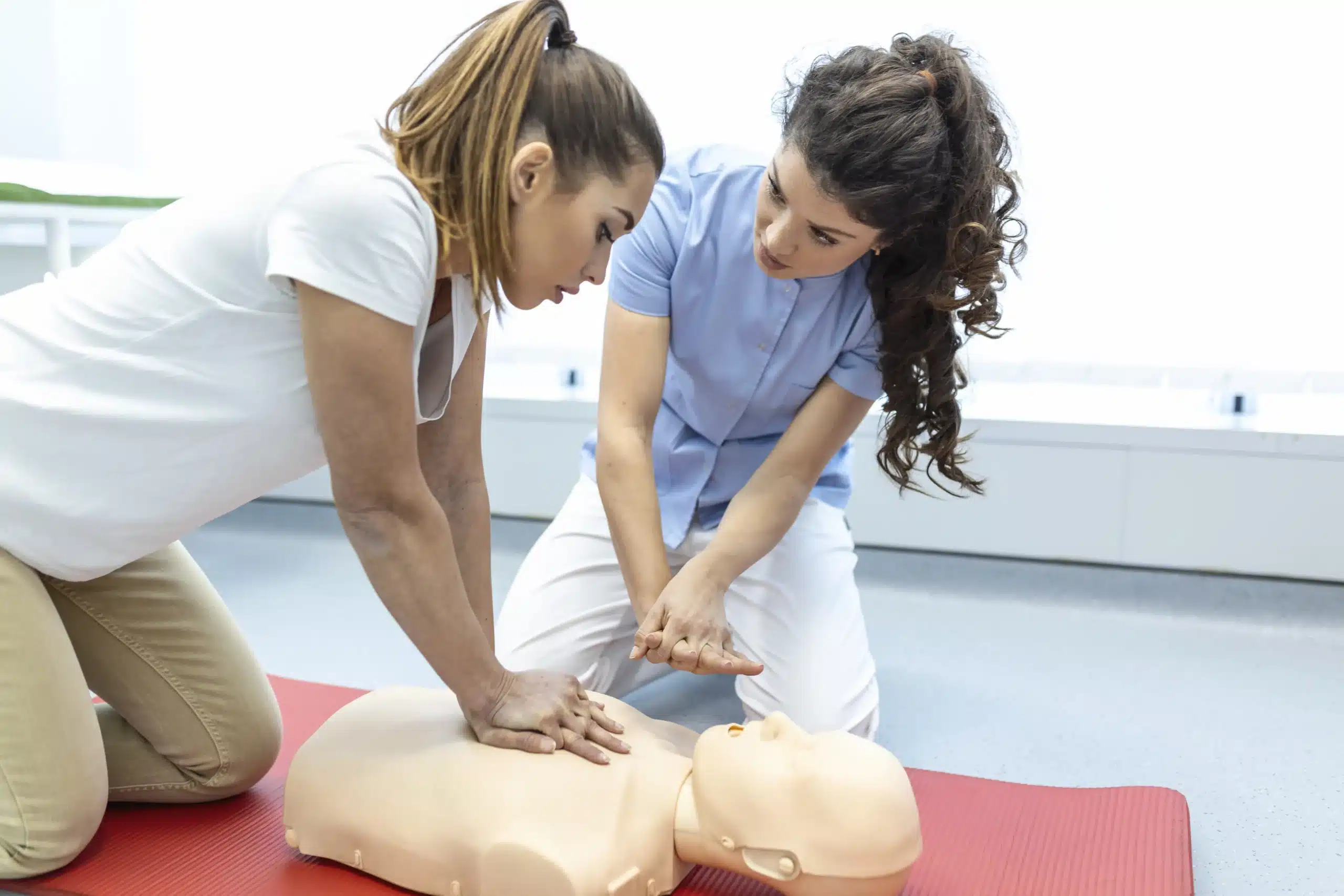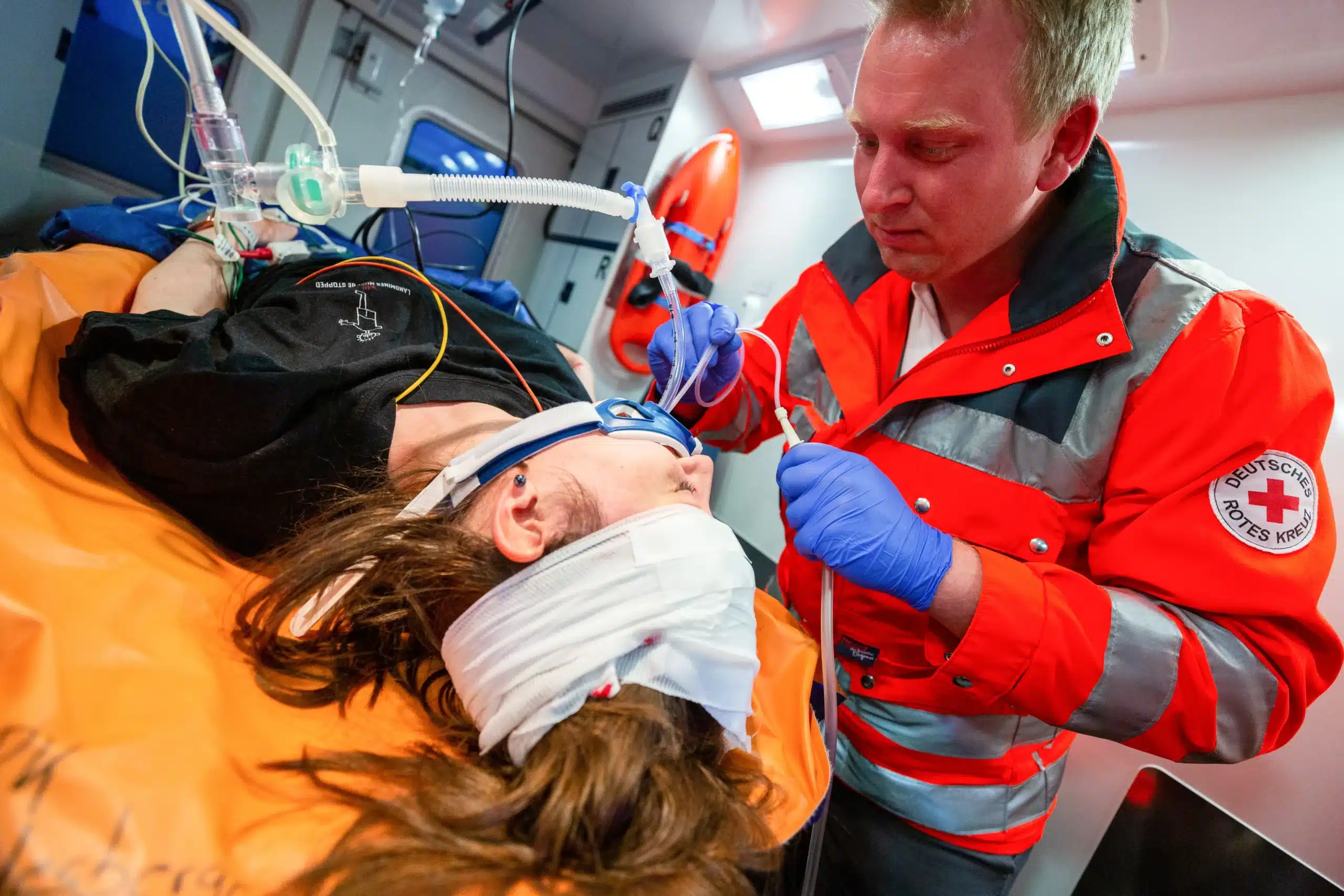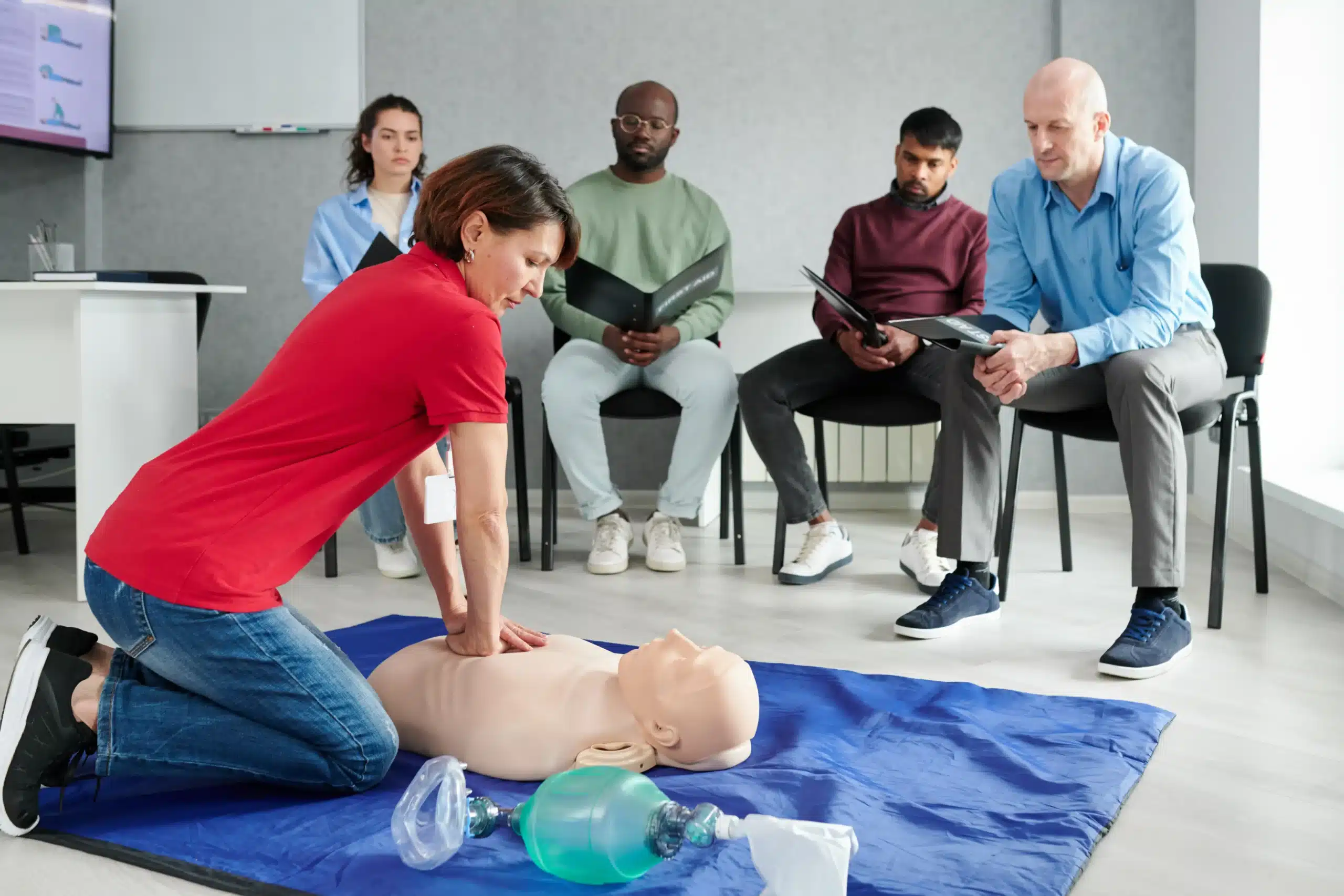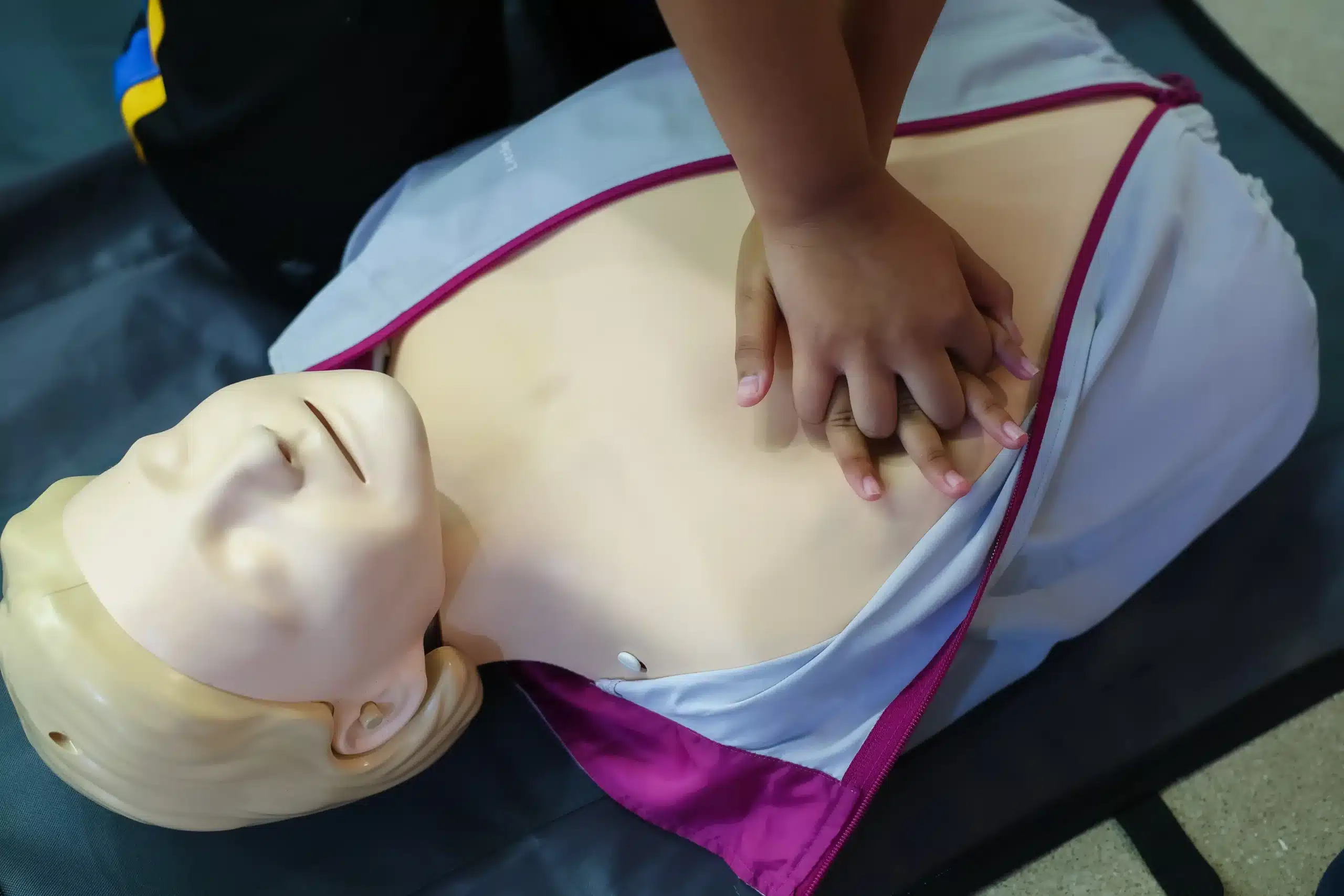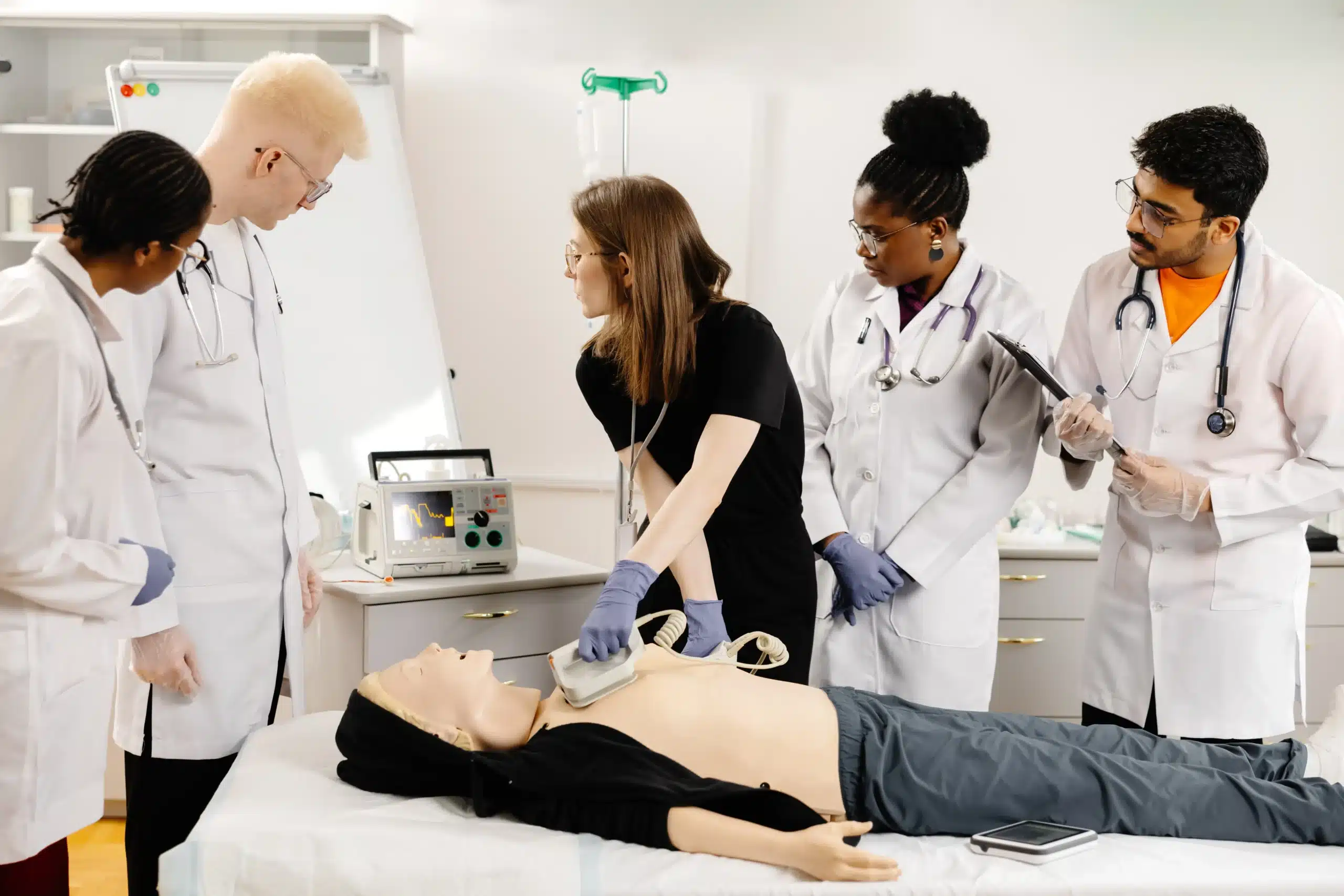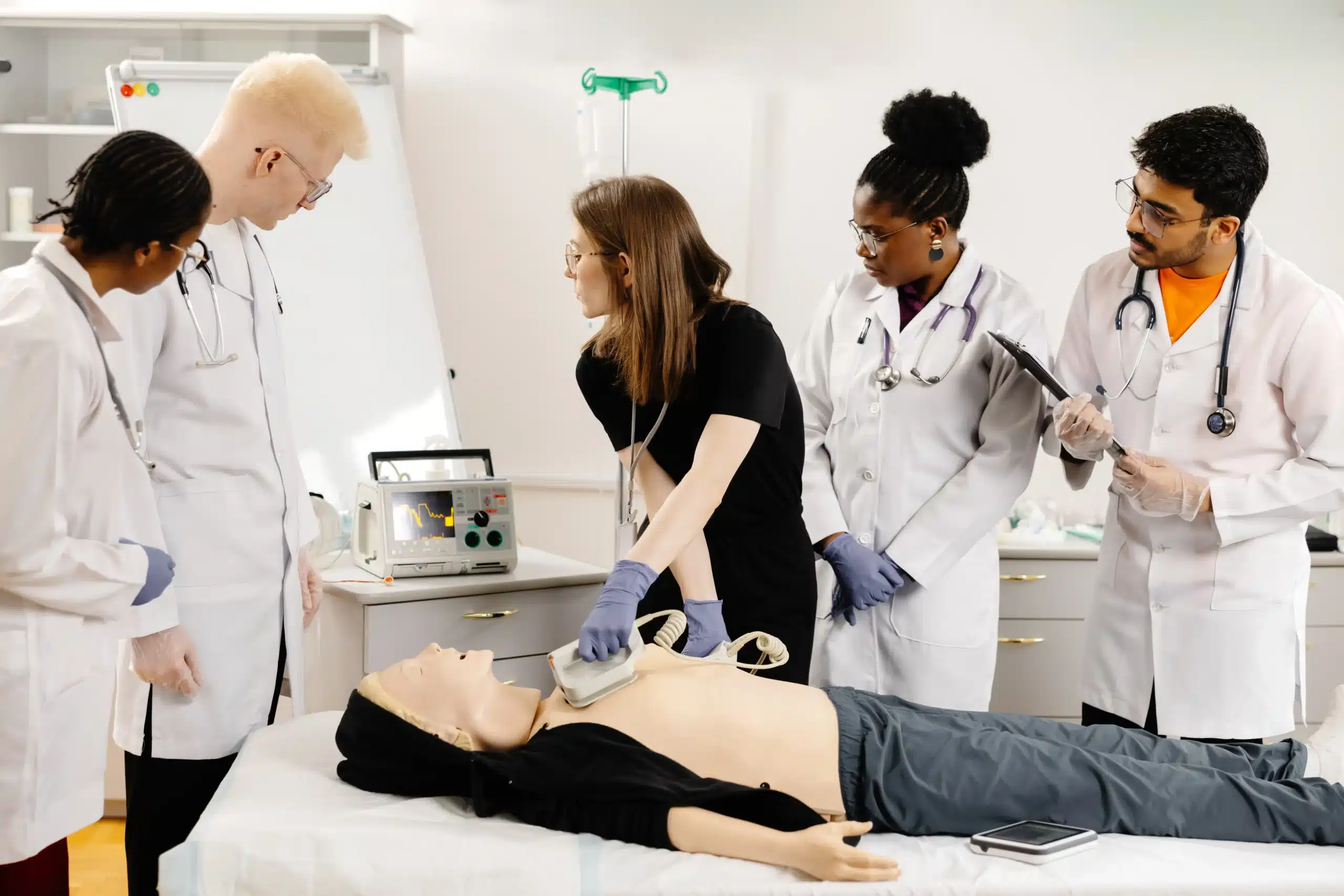Caring for seniors is a deeply rewarding experience, but it also comes with significant responsibilities, especially during medical emergencies. CPR for senior caregivers in Vacaville is a critical skill that can make a profound difference in the lives of those you care for. This guide explores the importance of CPR training, the various certification options available in Vacaville, and how to choose the right training provider. We’ll also cover the costs associated with CPR training, the benefits of certification for your caregiving career, and how to maintain your skills. Finally, we’ll provide resources for senior caregivers in Vacaville, including local support groups and additional training opportunities. Join us as we explore how CPR training can empower you to provide exceptional care and respond confidently in times of crisis.
Key Takeaways
- CPR skills empower senior caregivers: Equipping yourself with these skills allows you to confidently respond to emergencies and provide better care. Find a local provider like Vacaville CPR Classes to get certified.
- Select the right CPR training: AHA-certified courses with hands-on practice are key. Consider instructor qualifications, course content, and reviews when choosing a program.
- Stay current with your CPR certification: Renew your certification every two years and pursue continuing education to maintain your skills and confidence in emergencies.
What is CPR and Why is it Important for Senior Caregivers?
Cardiopulmonary Resuscitation (CPR) is a lifesaving technique used when someone’s heart stops beating or they stop breathing. It involves chest compressions and rescue breaths (or sometimes just chest compressions, known as hands-only CPR) to maintain blood and oxygen flow to the brain and other vital organs. Learning CPR can give you the confidence to respond effectively during medical emergencies like cardiac arrest. For more details on what CPR entails, the Red Cross offers helpful resources.
As a senior caregiver, you play a vital role in the well-being of your clients. You’re often the first person on the scene during a medical crisis, and knowing CPR can dramatically improve their chances of survival. CPR training equips you with the skills to respond quickly and confidently in such situations, potentially bridging the gap until professional medical help arrives. Consider getting CPR certified to gain the knowledge and practice you need to assess an emergency, perform CPR correctly, and communicate clearly with emergency responders. Given that cardiac arrest is a leading cause of death, being CPR-certified is an invaluable asset for any senior caregiver.
CPR Training Options in Vacaville
Finding the right CPR training can feel overwhelming, but it doesn’t have to be. Here’s a breakdown of common CPR training options in Vacaville to help you choose the best fit for your needs as a senior caregiver.
AHA-Certified Courses
Vacaville CPR Classes offers a range of American Heart Association (AHA) courses, including BLS, ACLS, PALS, CPR, and First Aid. These AHA-certified courses meet internationally recognized standards and are often a requirement for healthcare providers. AHA certification ensures your training reflects the latest research and best practices in resuscitation.
BLS Training
BLS (Basic Life Support) training focuses on providing immediate care for life-threatening emergencies. This includes CPR for adults, children, and infants, using an AED, and relieving choking. The AHA’s RQI program is a popular choice for healthcare professionals seeking BLS certification in Vacaville. RQI offers a blended learning approach with online modules and in-person skills sessions for added flexibility.
CPR and First Aid Certification
A combined CPR and First Aid certification prepares you to handle various emergencies, from cardiac arrest to minor injuries. This comprehensive training gives you the skills to respond effectively and confidently, a valuable asset for senior caregivers who often encounter diverse health situations.
ACLS Training
ACLS (Advanced Cardiovascular Life Support) training is designed for healthcare professionals who manage cardiopulmonary arrest and other cardiovascular emergencies. ACLS certification goes beyond basic CPR, covering advanced airway management, pharmacology, and team dynamics. While not always essential for senior caregivers, ACLS training can be beneficial for those working in higher-acuity settings or wanting more specialized knowledge.
Choosing the Right CPR Training Provider
Finding the right CPR training provider is crucial for senior caregivers. It’s an investment in your skills and ability to provide the best possible care. Here’s what to consider:
Accreditation and Certification
First, confirm the training provider is accredited by a nationally recognized organization like the American Heart Association (AHA). AHA-certified courses ensure the training aligns with national standards and best practices. Vacaville CPR Classes offers a range of AHA-certified courses, including CPR and first-aid training. This accreditation gives you confidence in the quality of the instruction.
Instructor Qualifications
Look into the instructors’ qualifications and experience. Experienced instructors who stay updated on the latest CPR techniques can significantly impact your learning. Fairfield CPR Classes, serving Solano County, is a well-established provider of AHA courses in Vacaville with access to qualified instructors. Their instructors undergo rigorous training and maintain their certifications.
Course Content
The course content should be comprehensive and tailored to your needs as a senior caregiver. For example, the American Heart Association’s RQI program is a popular choice for healthcare professionals seeking BLS, ACLS, and PALS certification. Ensure the course covers essential techniques, addresses common senior-specific emergencies, and provides ample hands-on practice. A good training program will equip you with the skills to handle various situations.
Reviews and Testimonials
Finally, check out reviews and testimonials from past participants. Real-life feedback offers valuable insights into the training quality. Positive reviews often highlight effective teaching styles, helpful course materials, and a supportive learning environment. ABC Health & Safety Training features testimonials from satisfied students. Hearing from others who have completed the course can help you make a more informed decision.
How Much Does CPR Training Cost?
CPR training costs vary depending on several factors, including the level of certification, the training provider, and whether you qualify for any discounts. Understanding these factors can help you budget appropriately and find a course that fits your needs.
Certification Level Pricing
Different CPR certifications have different pricing structures. Basic CPR and First Aid certification is typically less expensive than advanced certifications like ACLS (Advanced Cardiovascular Life Support) or PALS (Pediatric Advanced Life Support). This is because basic courses cover fundamental life-saving skills, while advanced certifications cover more complex procedures and require more extensive training. Local CPR training providers in Vacaville, like Safety Training Seminars, often offer various course packages. They emphasize hands-on learning and convenient same-day certification.
Factors Affecting Cost
Beyond the certification level, several other factors influence the overall cost. The training provider itself plays a significant role, with some organizations offering more competitive pricing than others. Safety Training Seminars is known for its competitive pricing and a low-price guarantee on select courses. The course format can also affect the cost. Blended learning courses, which combine online learning with in-person skills sessions, sometimes have different pricing than traditional classroom-based courses.
Group and Student Discounts
Many CPR training providers offer discounts for groups and students. If you plan to take a CPR course with a group, inquire about group discounts to reduce the cost per person. Students often qualify for discounted rates, so ask about student discounts if applicable.
Financial Assistance
While less common, some organizations may offer financial assistance or scholarships to help cover CPR training costs. This is particularly relevant for individuals who need CPR certification for their jobs but may not have the financial means to obtain it. Check with the training provider to see if any financial assistance options are available. Contacting providers directly, such as Safety Training Seminars, is the best way to learn about potential financial assistance or clarify any pricing questions.
Benefits of CPR Certification for Senior Caregivers
As a caregiver for seniors, you play a vital role in their health and well-being. CPR certification equips you with essential lifesaving skills, offering numerous benefits for both you and those in your care. It empowers you to respond effectively in medical emergencies, fosters trust with families, and can even boost your career prospects. Let’s explore these advantages in more detail.
Enhance Your Emergency Response
Senior caregivers often find themselves on the front lines of medical emergencies. CPR certification provides you with the knowledge and skills to respond swiftly and effectively when seconds count. Conditions like heart attacks and strokes require immediate action, and knowing CPR can significantly improve the outcome for the individual in your care. CPR training teaches you how to recognize the signs of cardiac arrest, administer chest compressions, and provide rescue breaths, increasing the chances of survival until professional medical help arrives. For caregivers in Vacaville, CPR classes are readily available to gain these vital skills.
Build Confidence in Crises
Emergencies are stressful situations, and knowing how to react calmly and efficiently can make all the difference. CPR certification instills confidence in your ability to handle crises, allowing you to take charge and provide critical care without hesitation. This confidence not only benefits the senior in your care but also helps you maintain composure and focus during a high-pressure situation. Consider CPR training in Vacaville to develop this crucial confidence.
Improve Job Prospects
In the competitive field of senior care, CPR certification is a valuable asset. Many employers prioritize candidates with this qualification, recognizing its importance in providing high-quality care. Listing CPR certification on your resume demonstrates your commitment to professional development and your ability to handle critical situations. It can open doors to new job opportunities and potentially lead to higher pay or promotions. Explore CPR and first-aid certification to enhance your career prospects.
Build Trust with Patients and Families
Families entrusting their loved ones to your care seek assurance that you are prepared for any eventuality. CPR certification provides that peace of mind, demonstrating your dedication to their senior’s safety and well-being. It fosters trust and strengthens the caregiver-family relationship, creating a collaborative environment focused on providing the best possible care. Contact Vacaville CPR Classes to discuss CPR training options and how they can benefit your caregiving career.
What to Expect During CPR Training
Knowing what to expect can help you feel prepared and confident going into your CPR training. Here’s a breakdown of a typical CPR class:
Course Structure and Duration
CPR training courses in Vacaville range from basic CPR and First Aid to advanced certifications like ACLS and PALS. The course you choose will determine the length of your training, which can typically range from a few hours to a full day. Local CPR training offers a more personalized experience with smaller class sizes, allowing for direct instructor feedback and convenient same-day certification.
Hands-on Practice
CPR training isn’t just lectures and videos. You’ll spend a significant portion of the class practicing hands-on skills. You’ll learn chest compressions, rescue breaths, and how to use an automated external defibrillator (AED). This practical experience is crucial for building muscle memory and confidence. Whether you’re a healthcare professional or preparing for any situation, BLS, ACLS, PALS, or a combined CPR/First Aid course provides essential, potentially life-saving knowledge.
Assessment and Certification
To receive your CPR certification, you’ll demonstrate your skills and knowledge through a practical exam, and in some cases, a written test. The American Heart Association RQI program is a popular option for medical professionals seeking BLS, ACLS, and PALS certifications. Upon successful completion, you’ll receive an official certification card, typically valid for two years. This certification validates your competence in providing critical lifesaving skills. Completing a BLS course in Vacaville grants you an AHA certification, recognizing your proficiency.
Maintaining Your CPR Certification
As a senior caregiver, your CPR skills are invaluable. But like any important skill, CPR requires upkeep. Staying current with the latest guidelines and techniques ensures you’re always prepared to provide the best possible care.
Renewal Requirements
CPR certifications don’t last forever. They’re typically valid for two years, after which you’ll need to recertify to continue working as a certified caregiver. This process involves retaking the CPR course to refresh your knowledge and demonstrate continued proficiency. Check your certification card for the expiration date and be sure to schedule your renewal course before it expires. Keeping your certification current demonstrates your commitment to providing high-quality care.
Continuing Education
Beyond renewing your certification, ongoing learning is key to maintaining top-notch CPR skills. Look for opportunities to expand your knowledge and refine your technique. Vacaville CPR Classes offers continuing education options, including hands-on practice and refresher courses. These courses often cover updates to CPR guidelines, allowing you to stay informed about best practices. Continuing education not only reinforces your existing skills but also boosts your confidence in emergencies. Consider adding regular continuing education to your professional development to stay at the top of your game.
Using CPR Skills in Daily Caregiving
As a caregiver, you’re responsible for another person’s well-being, and that can feel like a lot. Knowing CPR can truly make a difference in a crisis. It equips you to handle emergencies effectively and provides peace of mind in your daily caregiving routine. This section focuses on how you can apply those learned CPR skills in everyday caregiving situations.
Recognize Emergency Situations
CPR certification is a vital skill for caregivers. It empowers you to recognize and respond to emergencies promptly. But what qualifies as an emergency that requires CPR? Cardiac arrest is the primary condition that necessitates CPR. It occurs when the heart suddenly stops beating, cutting off blood flow to the brain and other vital organs. Recognizing the signs of cardiac arrest is the first step to providing effective care. These signs include sudden loss of responsiveness, absence of breathing or only gasping, and no pulse. If you encounter someone in this state, immediate action is crucial. CPR involves chest compressions and rescue breaths (or hands-only CPR) to maintain oxygen and blood flow during cardiac arrest. Knowing how to assess the situation and begin CPR can significantly improve the person’s chances of survival. For more detailed information on CPR and its importance for caregivers, check out this helpful article.
Communicate with Emergency Services
Once you’ve recognized a cardiac arrest and started CPR, the next critical step is contacting emergency services. Time is of the essence in these situations, so clear and concise communication is essential. First, call 911 immediately. Provide the dispatcher with your exact location and a brief description of the situation. Explain that the individual is unresponsive and not breathing, and that you’re currently performing CPR. Stay on the line with the dispatcher and follow their instructions. They may provide further guidance or ask clarifying questions. Remember, bystander CPR can dramatically increase a person’s chances of survival, and every second counts. The Red Cross offers valuable insights into the importance of bystander CPR and its role in saving lives. Your quick thinking and communication with emergency services can bridge the gap between the onset of cardiac arrest and the arrival of professional medical help.
CPR Training Providers in Vacaville
Finding the right CPR training provider is crucial, especially for senior caregivers. Here’s a look at some reputable options in Vacaville:
Vacaville CPR Classes
Vacaville CPR Classes is a woman-owned American Heart Association (AHA) Training Center offering various AHA courses, including BLS, ACLS, PALS, CPR, and First Aid. They cater to diverse learning styles with online and blended learning options. For more details, explore their CPR and First Aid certification courses. They also offer group discounts, making it a cost-effective choice for facilities or groups of caregivers.
Safety Training Seminars
Safety Training Seminars, also a woman-owned AHA Training Center, delivers high-quality AHA courses, including BLS, ACLS, PALS, CPR, and First Aid, right here in Vacaville. Their commitment to daily classes offers flexibility for busy caregivers. You can explore their RQI classes and check out their low-price guarantee. Contact them for any questions.
American Red Cross
The American Red Cross is a well-known provider of CPR and first aid training. With courses designed for both healthcare professionals and the general public, they offer various options to equip individuals with these essential skills. Visit their website to find a class near you.
ABC Health & Safety Training
With over 25 years of experience, ABC Health & Safety Training focuses on AHA-certified CPR and First Aid instruction. Their two-year certifications cater to both healthcare professionals and individuals. Learn more about their courses on their website.
CPR Class Today
CPR Class Today specializes in AHA-certified training for CPR, ACLS, BLS, AED, and First Aid. Their blended learning format, combining online coursework with in-person skills sessions, provides a convenient path to certification. Visit their website for course schedules and details.
Resources for Senior Caregivers in Vacaville
Being a senior caregiver is a demanding but rewarding role. Connecting with others and staying up-to-date on the latest training can make all the difference. Here are some resources in Vacaville to help you provide the best possible care:
Local Support Groups
While I don’t have specific local support groups to list at the moment, I encourage you to check with your local senior centers, hospitals, and community organizations. These places often host caregiver support groups and can offer valuable resources and connections. Building a network of fellow caregivers can provide emotional support, practical advice, and a sense of community. Sharing experiences and challenges with others who understand can be incredibly helpful. I’ll update this section as I find more specific resources. In the meantime, consider reaching out to your local Area Agency on Aging for assistance.
Additional Training
Beyond CPR and first aid, there are several opportunities in Vacaville to expand your skillset. For caregivers looking to enhance their emergency response skills, Vacaville CPR Classes is a woman-owned American Heart Association (AHA) Training Center offering various AHA courses, including BLS, ACLS, PALS, CPR, and First Aid. They also offer convenient RQI classes for healthcare professionals seeking a streamlined way to maintain their certifications. For those seeking competitive pricing, Safety Training Seminars offers a low-price guarantee on some courses. Fairfield CPR Classes also provides a variety of AHA courses in the Vacaville area. If a blended learning approach better suits your busy schedule, CPR Class Today combines online learning with in-person skills sessions for CPR, ACLS, BLS, AED, and First Aid certification. These resources can help you stay prepared for various emergencies and provide confident, informed care.
Related Articles
- Why CPR is Important in Healthcare (And How You Can Learn It)
- CPR Certification in Fairfield: Your Guide – Vacaville CPR Classes
- CPR Courses in Fairfield: Your Complete Guide – Vacaville CPR Classes
- CPR Certification in Vacaville: Your Complete Guide – Vacaville CPR Classes
- Advanced Cardiac Life Support (ACLS) Training in Dixon – Vacaville CPR Classes
Frequently Asked Questions
Q: How often do I need to renew my CPR certification? CPR certifications are typically valid for two years. It’s essential to renew your certification before it expires to maintain your credentials and ensure your skills are up-to-date.
Q: What if I have a busy schedule? Are there flexible CPR training options available? Yes, many CPR training providers offer flexible options to accommodate busy schedules. Look for providers offering evening and weekend classes, blended learning formats (combining online coursework with in-person skills sessions), or accelerated courses.
Q: As a senior caregiver, do I really need professional CPR training? While online resources can be informative, professional CPR training provides hands-on practice, expert instruction, and feedback tailored to your needs as a caregiver. It also leads to a recognized certification, which many employers require.
Q: What’s the difference between CPR and First Aid training? CPR focuses on life-threatening situations like cardiac arrest, where someone’s heart stops beating. First Aid covers a broader range of injuries and illnesses, from minor cuts and burns to more serious conditions like choking or allergic reactions. Many training providers offer combined CPR and First Aid courses.
Q: How can I find CPR training specifically designed for senior caregivers in Vacaville? Several organizations in Vacaville offer CPR training tailored to the needs of senior caregivers. Contact local training centers or check online directories for courses that address age-related health concerns and emergencies common among seniors.
